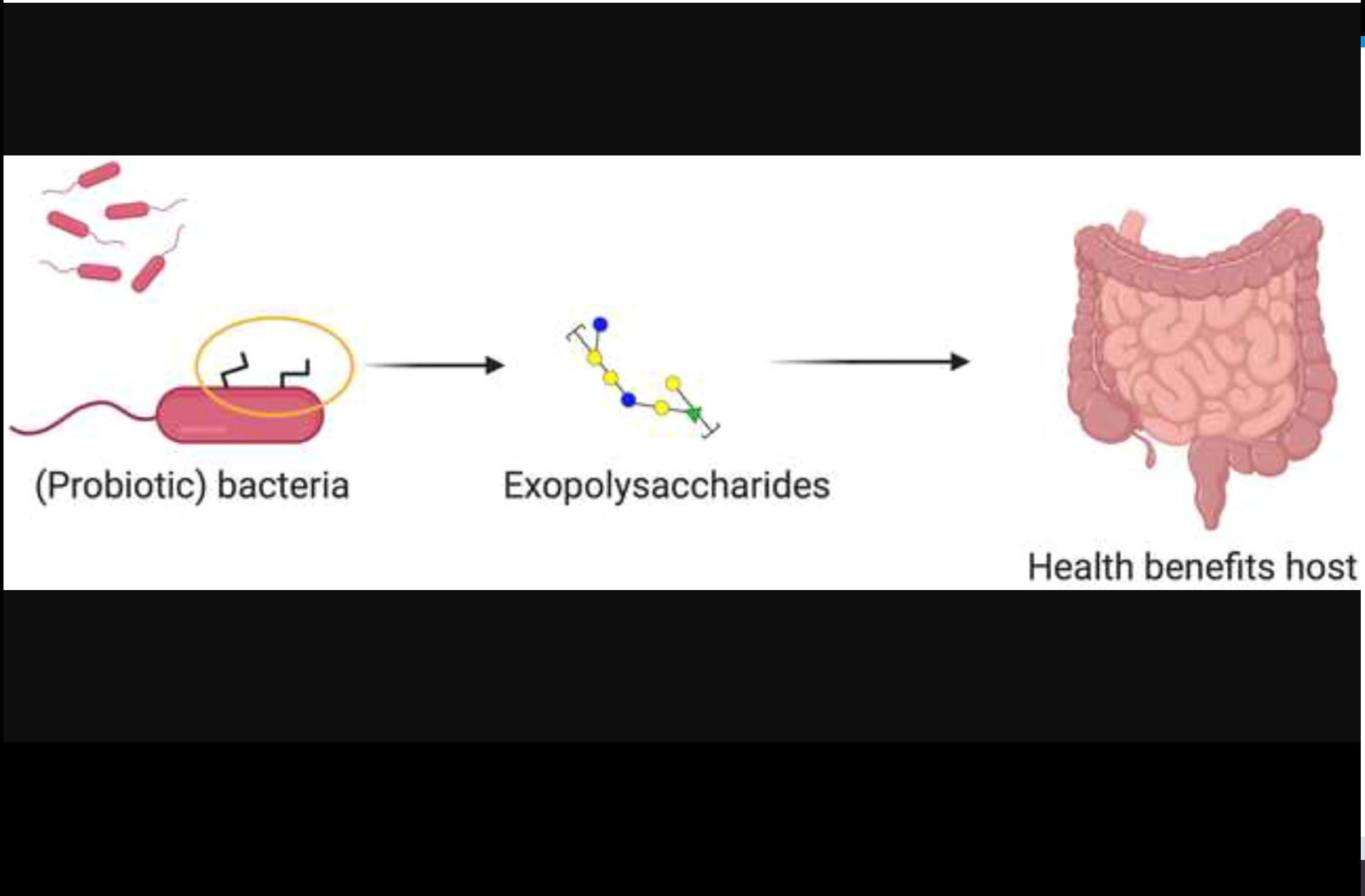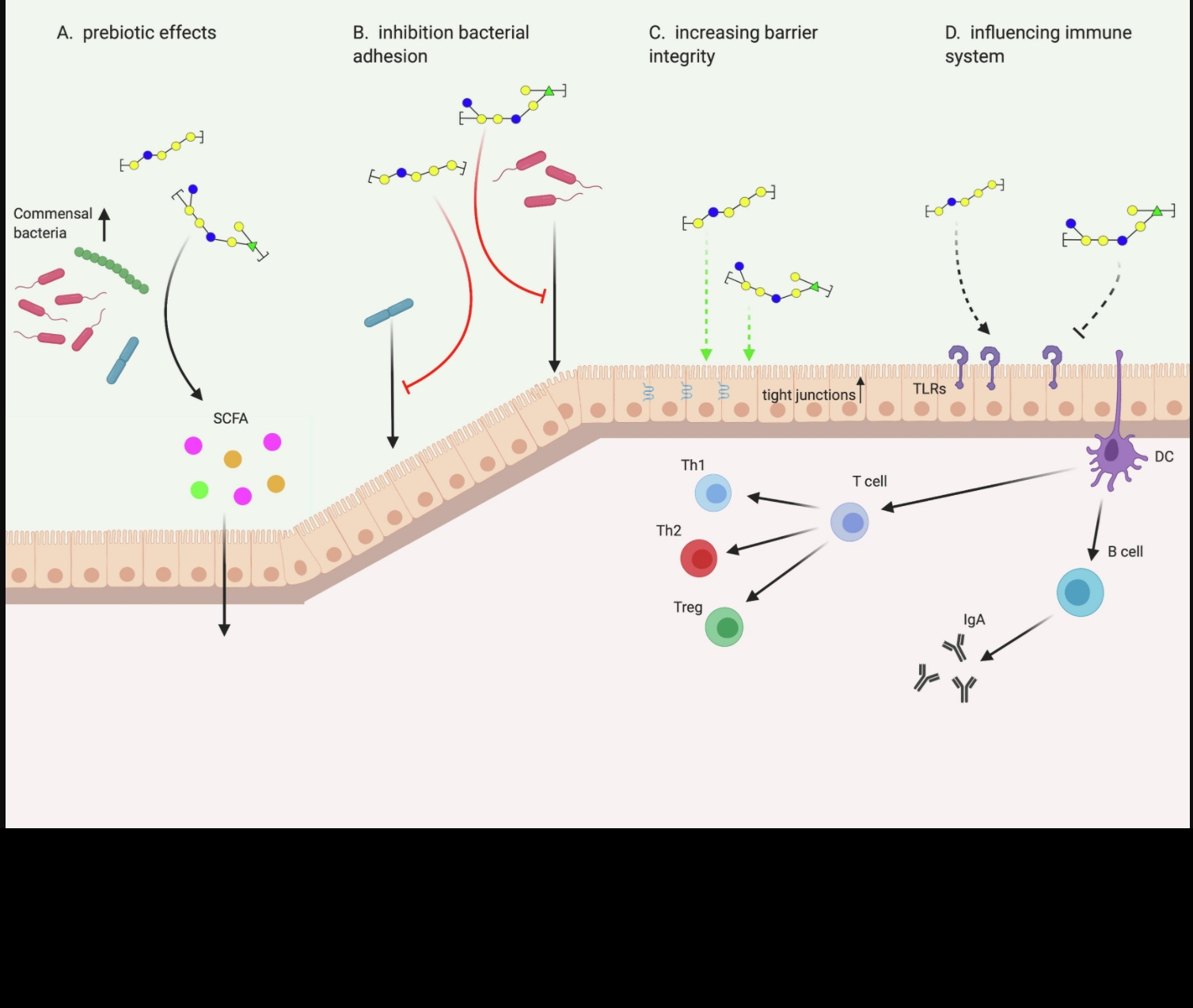Benefits of bacteria-derived exopolysaccharides on gastrointestinal microbiota, immunity and health
Marjolein M.P.Oerlemans Journal of Functional Foods Volume 76, January 2021, 104289
Highlights
• EPS decreases bacterial adhesion to the intestinal epithelium.
• EPS influences the epithelial barrier integrity in a structure dependent manner.
• EPS interacts with the host immune system via TLRs and CLRs.
• EPS protect commensal, beneficial bacteria against immune responses.
The gastrointestinal tract (GIT) is colonized by a broad spectrum of microorganism, of which bacteria are especially recognized for the health effects they exert. However insight in the effector molecules on the bacteria responsible are still largely lacking. Recently, bacterial exopolysaccharides (EPS), which are glycan structures on the bacterial cell wall, have gained considerable attention for their effects on human health. EPS are found to act as polymers that directly influence bacterial interactions with their host, such as bacterial adhesion to the GIT epithelium, their influence on immune responses, and the intestinal microbiota. These effects are highly dependent on the type of EPS structures and might be related to specific monosaccharides or linkages in EPS. Here, current knowledge on structure-specific EPS functions is reviewed in view of possible use of EPS to stimulate intestinal health and the formulation of dietary EPS mixtures or the possible creation of new EPS structures.















